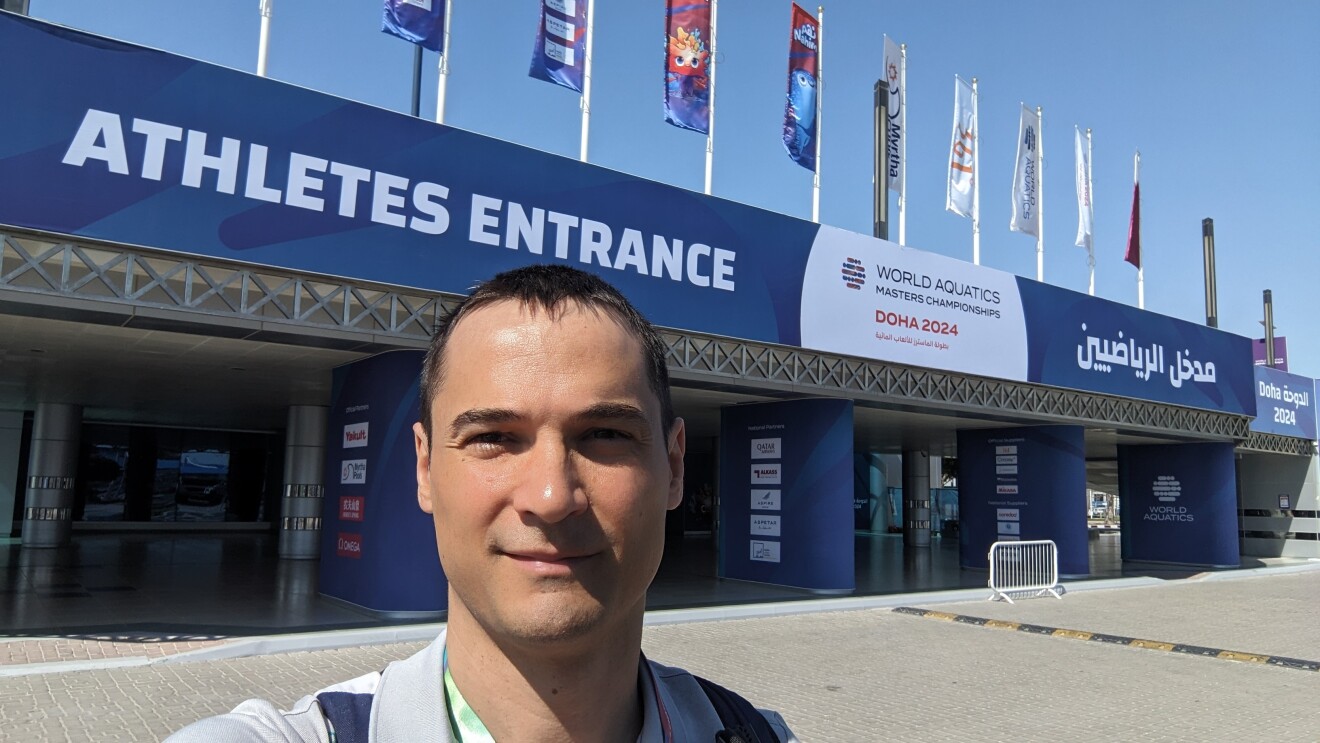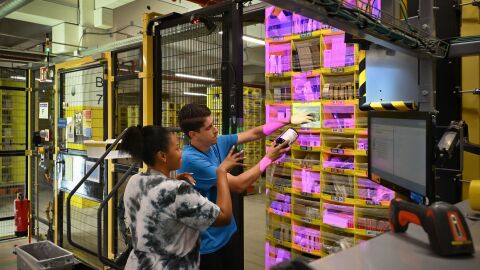Yves Denis joined AWS as a Senior Customer Solutions Manager back in June 2022. Now, he looks after two French multinational customers in the energy vertical and describes his role as ‘a Swiss army knife or a GPS device’. Yves helps customers accelerate their cloud programmes, increase their cloud maturity, and get more value from the cloud. After work or during his lunch break, you’ll find him in the pool.
Just last week, Yves was in Doha, Qatar, to compete in the Worldwide Swimming Masters Championship. He swam the 100m freestyle, the 50m freestyle, and the 4x50m medley relay. Like all Amazonians, he aimed high, finishing in 9th and 14th place in his age category – an incredible achievement!

We sat down with Yves and asked him some questions about his swimming journey:
1. What drove you to pursue competitive swimming?
When I turned 30, I felt I needed to exercise more, and it brought me back to the pool after a break of around 10 years. During my first competitions, I noticed I hadn’t lost much speed, so I could easily be on the national championship podiums in the 30-35-year-old category. That really spurred me on, so I participated in four world championships between 2014 and 2019. After Covid-19 – which kept me away from the pool for months – and now in my mid-forties, I decided I would dive in again and see just how competitive I can be!
2. How did you prepare for the championship?
I officially started my training in September 2023 by joining a club near the office where I could swim during my lunch break with a friendly group and a coach. I would typically swim three or four times a week, doing around 2,500 or 3,000m per training session. Because my body is not quite as resistant as it used to be, I also put in regular time with physiotherapists and kinesitherapists. Now, I wish I had used more time to do muscle reinforcement exercises out of the water, because I feel my body doesn’t have as much power and reactivity as it used to.
3. What challenges did you face, and how did you overcome them?
My first challenge along the way was to manage my time. With a job at AWS and a family, it can be difficult to organise my agenda, so sometimes I had to make difficult decisions. I am very grateful that everyone around me understood how important it was for me to live this experience, so everyone was very flexible, and I tried to not neglect time with friends or family along the way. Also, I over-extended myself during a ski session in the Alps which resulted in a broken thumb just 11 days before the 100m freestyle. It’s been mentally tough to convince myself that such an injury is “ not important, you can still swim in this condition”. In really, I think that did impact my performance, but not as much as it could have.
4. How does your experience in swimming complement your work life?
There are a lot of work lessons I’ve picked up from swimming. Sorry for all the non-French speaking people out there, but I like to say “nager” (to swim) is the closest sport you can find to “manager” (to manage), you only need to learn two more letters. Swimming teaches you to be humble, have patience, be resilient, and to focus. There are three main ideas I’ve picked up through swimming: i) To obtain a result, you have to make a lot of effort, feel pain without the guarantee of success, ii) You swim in an element that you can’t grasp, water is intangible just like the personality of people you need to coordinate with at work; iii) To get better in the water, you must be 100% concentrated on what you are doing, feeling your movements, teaching your body how it has to behave. That’s the same when you have to focus on a narrative, a customer workshop, or preparing for an AWS summit talk.
5. Any advice for colleagues balancing work and personal passions?
You need personal passions. Work can be one for some of us but, generally, people have other things they want to do too. I have colleagues and customers who play music, cook, play and invent board games, and so much more. Don’t give up on those passions – they make you a better person. Rather, think about defining your goals and priorities so that you keep your time and energy under control, and you manage your own expectations and the ones of the people around you.










